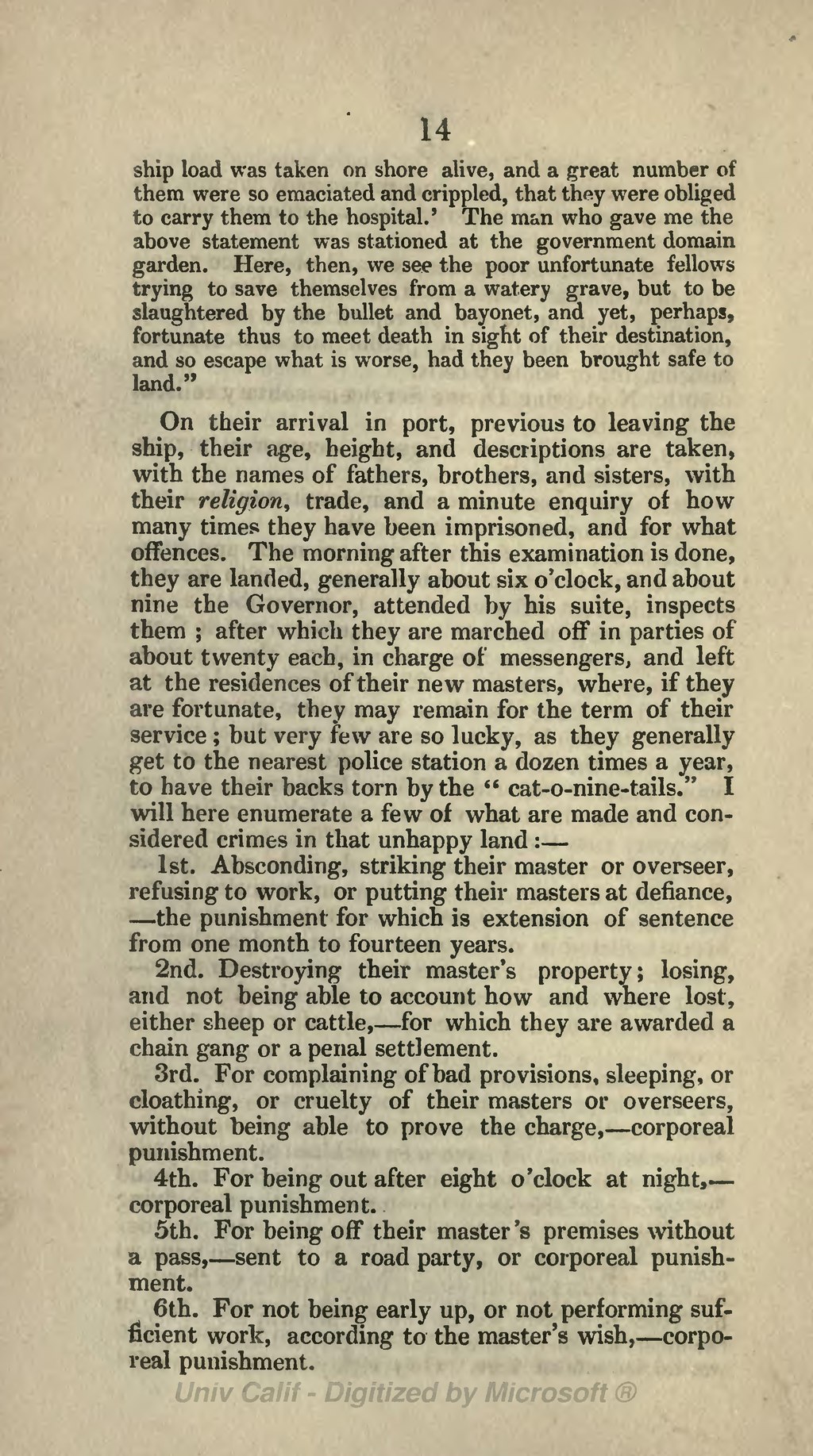14
ship load was taken on shore alive, and a great number of them were so emaciated and crippled, that they were obliged to carry them to the hospital.' The man who gave me the above statement was stationed at the government domain garden. Here, then, we see the poor unfortunate fellows trying to save themselves from a watery grave, but to be slaughtered by the bullet and bayonet, and yet, perhaps, fortunate thus to meet death in sight of their destination, and so escape what is worse, had they been brought safe to land."
On their arrival in port, previous to leaving the ship, their age, height, and descriptions are taken, with the names of fathers, brothers, and sisters, with their religion, trade, and a minute enquiry of how many times they have been imprisoned, and for what offences. The morning after this examination is done, they are landed, generally about six o'clock, and about nine the Governor, attended by his suite, inspects them; after which they are marched off in parties of about twenty each, in charge of messengers, and left at the residences of their new masters, where, if they are fortunate, they may remain for the term of their service; but very few are so lucky, as they generally get to the nearest police station a dozen times a year, to have their backs torn by the "cat-o-nine-tails." I will here enumerate a few of what are made and considered crimes in that unhappy land:—
1st. Absconding, striking their master or overseer, refusing to work, or putting their masters at defiance,—the punishment for which is extension of sentence from one month to fourteen years.
2nd. Destroying their master's property; losing, and not being able to account how and where lost, either sheep or cattle,—for which they are awarded a chain gang or a penal settlement.
3rd. For complaining of bad provisions, sleeping, or cloathing, or cruelty of their masters or overseers, without being able to prove the charge,—corporeal punishment.
4th. For being out after eight o'clock at night,—corporeal punishment.
5th. For being off their master's premises without a pass,—sent to a road party, or corporeal punishment.
6th. For not being early up, or not performing sufficient work, according to the master's wish,—corporeal punishment.
